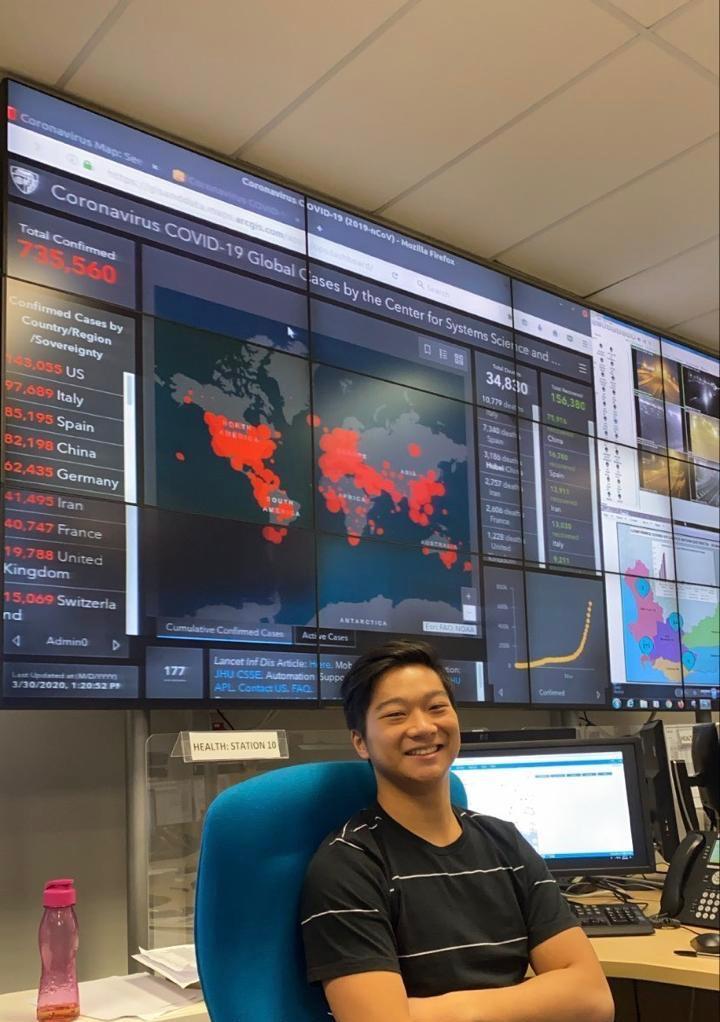Medical students rise to the challenge of COVID-19
19 December 2020 | Story James Irlam (Primary Health Care Directorate), Virginia Zweigenthal (Division of Public Health Medicine, School of Public Health and Family Medicine). Read time 4 min.
The Faculty has since 2016 offered electives for senior medical students to further their clinical, research, or public health experience. The COVID-19 pandemic provided the opportunity to offer prescribed electives, or ‘selectives’, to assist the Western Cape provincial response.
Medical students in fifth and sixth years were recruited with the help of the UCT Surgical Society COVID-19 Student Taskforce and SHAWCO Health, for COVID-19 ‘hotline’ shifts at the provincial Disaster Management call centre; for telephonic case and contact tracing; and for the Screening and Testing Centre or clinical work at Groote Schuur Hospital. Students were incentivised by means of a UCT Plus Leadership through Community Service Award, which will show on their academic transcripts.
More than 100 students undertook COVID-19 selectives during April to September 2020, and each reflected on their experiences in a written report. All said that they benefitted in various ways: gaining a deeper understanding about COVID-19 clinical management and the logistics of the health service pandemic response; sharpening their skills in telephonic interviewing and counselling; and experiencing excellent teamwork and supervision. They enjoyed ‘making a difference’, despite long and emotionally draining shifts. They faced the challenges of tracing individuals, of language barriers, and of telephonic history-taking and counselling, while coping with the concurrent demands of remote academic learning for the first time.
"This pandemic is here to stay and I feel it is such a great learning opportunity to do this elective, it is hands on training, working directly with the patients that are experiencing the complications of this pandemic. At times just to phone and being there to listen to the patients already made a huge difference.”
One student reflected: "This pandemic is here to stay and I feel it is such a great learning opportunity to do this elective, it is hands on training, working directly with the patients that are experiencing the complications of this pandemic. At times just to phone and being there to listen to the patients already made a huge difference". Students emphasised the need to prepare well and to reflect regularly as a coping strategy and requested additional selective options in future. They were commended by their supervisors for their professionalism, empathy, teamwork, and initiative, which included one student having the contact tracing interview guide translated into Afrikaans and Xhosa.
Many UCT selective students working in Cape Town and rural health districts were core to the case and contact tracing teams during the second Covid-19 wave in the Western Cape. Over their end of year vacation over 40 students worked solidly from December to January, over Christmas and New Year, and were the backbone of teams. The second wave was severe with students contacting many ill patients and families, while sometimes dealing with family members with Covid-19. Mutual support was promoted and aided by non-compulsory student-focused debriefing sessions.
We have seen how excellent communication helped to swiftly identify selective opportunities, and how proactive recruitment by student societies, incentivised by a community service award, facilitated substantial uptake. We learnt that good orientation to work processes should be complemented by regular protocol updates and by ready access to student health and counselling services to mitigate the mental health burden. We were encouraged to see students respected as integral members of the response teams and supported so well by their supervisors.
Despite limited access to clinical platforms during the COVID-19 pandemic, medical students rose to the challenge of the COVID-19 response, enjoyed their experiences, and acquired valuable skills for the future.
For more information, visit https://covid19taskforce.wixsite.com/uctsurgicalsociety
 This work is licensed under a Creative Commons Attribution-NoDerivatives 4.0 International License.
This work is licensed under a Creative Commons Attribution-NoDerivatives 4.0 International License.
Please view the republishing articles page for more information.










